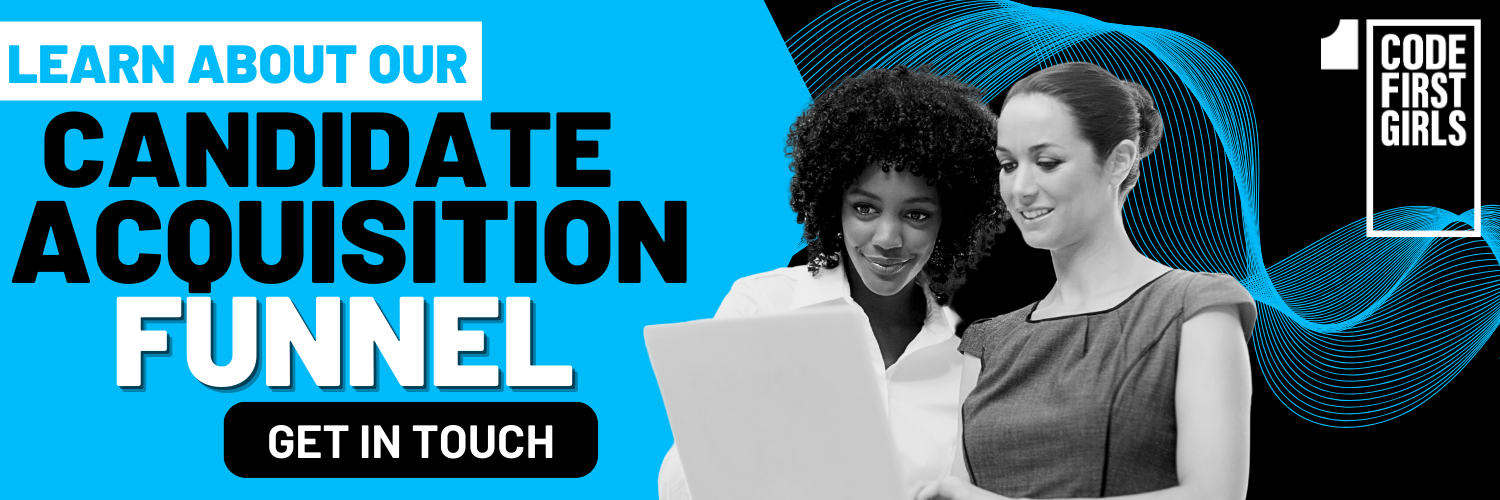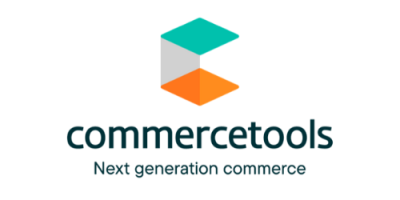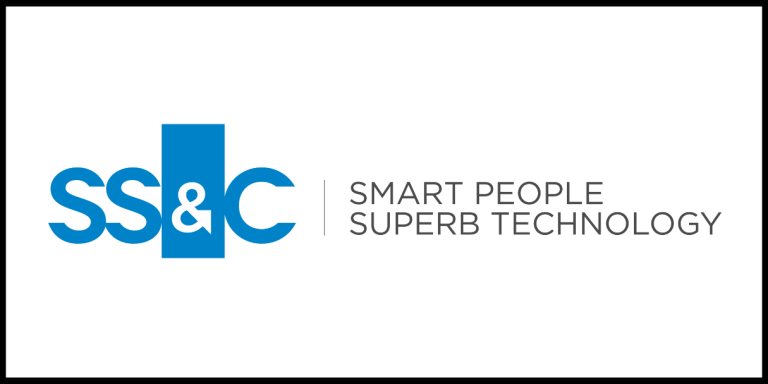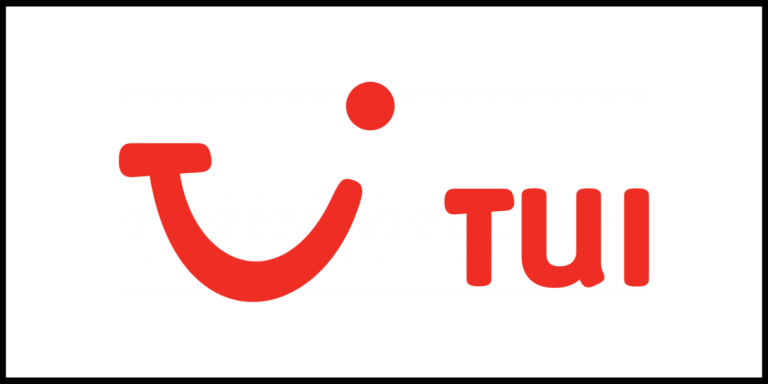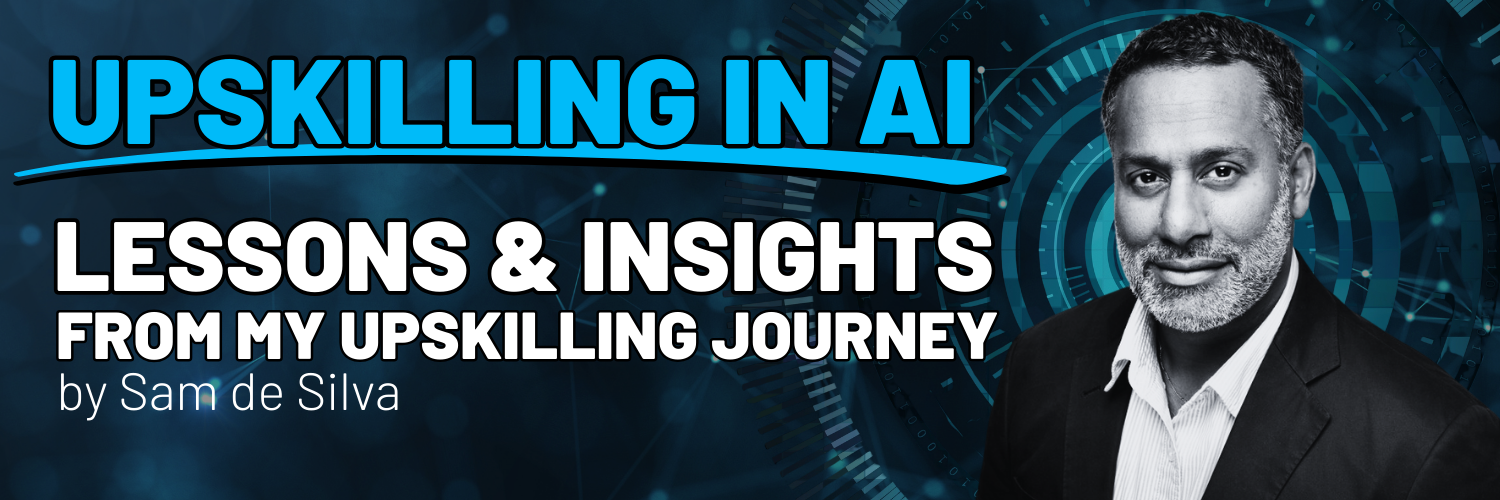
Content Menu
Lessons and Insights from My AI Upskilling Journey
Sam is an AI Strategy Advisor and active member of the Code First Girls Tech Advisory Board, with over 25 years’ experience in senior leadership roles at Goldman Sachs, UBS, and Credit Suisse.
After recently completing his own year-long AI upskilling journey, Sam has written a series of content for our community to share what he learned, how it shaped his career switch into AI, and his advice for leaders looking to prepare their teams for the future.
His journey is full of practical lessons, honest reflections, and ideas you can apply right away – read on to see how he did it.
A personal reflection on my path to AI
The best advice I received was “It’s a marathon not a race. Learn something new every day”.
AI isn’t entirely new to me. I studied Computer Science at King’s College London and at A-level. But I hadn’t coded in years, and learning Python revealed the gap between past knowledge and today’s demands.
One of the hardest shifts was the isolation. I went from a Managing Director role to studying alone for a year, often for 14 hours a day, seven days a week. Other interests like cycling helped restore some balance, but I missed the energy of colleagues and the variety of my previous work.
I began each day with a morning ritual, waking up at 5:30am, starting the day with a reminder of why I am doing this, and that I can do this. I also leveraged my network for support.
I had to be intentional about what, why, how, and when I was learning. Setting boundaries was essential: knowing when to push, when to pause, and how to keep it sustainable. That’s not easy when you’re driven and love solving problems.
Interestingly, AI became part of the solution. I was fascinated by how it supported my learning, debugging, testing, explaining code, and deepening my understanding.
What have I learned?
I was clear about what I wanted to learn. I wanted to understand how AI works and how it can be used commercially, safely and responsibly.
Up to that point, my career had been in strategic leadership roles at investment banks like Goldman Sachs, Credit Suisse, and UBS. More recently, I had been working closely with senior engineers to build and enable the future workforce. What I saw was a growing recognition that something fundamental was shifting – not just in technology, but in the skills leaders need to manage the workforce of the future.
That shift opened my eyes to the skills I would need, and I set out to re-learn how to code, build and evaluate AI models, embed responsible AI practices, and develop real-world AI use cases.
To achieve this, I took online courses, read academic and industry papers, became certified in TensorFlow, and completed a business-focused, interactive 10-week programme at MIT.
Why learn coding if AI can now do it?
The real risk isn’t AI. It’s when something breaks and no one understands the code. We saw a version of this after the financial crisis, where innovation outpaced comprehension and the consequences were significant. Human-in-the-loop is essential. Without human understanding, we risk losing control and accountability.
We need experienced engineers who bring more than code. They offer judgement, context, and systems expertise. We have that today, but if we stop teaching and developing coders, we will face serious challenges in the future.
Coding will continue to evolve, with AI making learning faster and more efficient. Low-code tools will open doors to a broader talent pool, while many existing engineers will upskill into AI and ML. Some people simply love to code, and we will always need that deep technical expertise.
Academic postgraduate courses or online courses?
In a fast-moving AI world, those who upskill quickly will have a clear advantage.
Online courses are practical, quick to start, and low-cost – especially Code First Girls training, which is free to women! Interactive programmes add group learning and structure. Postgraduate degrees offer deeper academic thinking but require more time and commitment. Each has a place in the learning spectrum, and it’s encouraging to see academic institutions offering flexible online options alongside formal degrees – helping organisations scale learning more effectively.
What advice would you give to someone just starting out in tech?
The learning curve can feel steep, so start with something familiar or foundational. Use free or affordable resources, including AI, to support your learning journey. Ask questions, celebrate small wins, and keep building momentum.
Tech is a team sport, progress comes faster when you learn with others, share knowledge, and stay curious, so join online or in-person communities. If one course does not make sense, try another.
Different providers explain things in different ways, and sometimes beginning at a foundational level is the best step forward. Revisiting material and filling gaps will give you a stronger base for advanced learning.
The skills you already bring also matter.
In the AI era, subject matter expertise is just as valuable as coding. Understanding the business context, data, and desired outcomes helps you bridge the gap between problem and solution. At its core, tech teaches you how to structure and consume data, then generate outputs based on logic and mathematics, whether deterministic or probabilistic. Combine that with your existing strengths, and that is where the real impact happens.Keep building your confidence by creating routines that inspire you e.g. watch talks such as TED, explore new ideas, and seek out influences that motivate you.
Finally, create the right work, study, and life balance. It is the key to staying healthy, sustaining your learning, and thriving in the long run.
What advice would you give to business leaders?
Create a culture of continuous learning. Offer relevant AI upskilling programmes to all levels of the organisation, both technical and tech-adjacent employees. Be prepared to change and adapt programmes to your use cases and general trends in your industry. Make responsible AI part of the learning experience. Use vendors to complement your internal training programmes.
I recently heard someone say, “I’m not afraid that AI will take my job, but someone with AI skills will.” If you’re not providing AI training, your top talent will look elsewhere.

